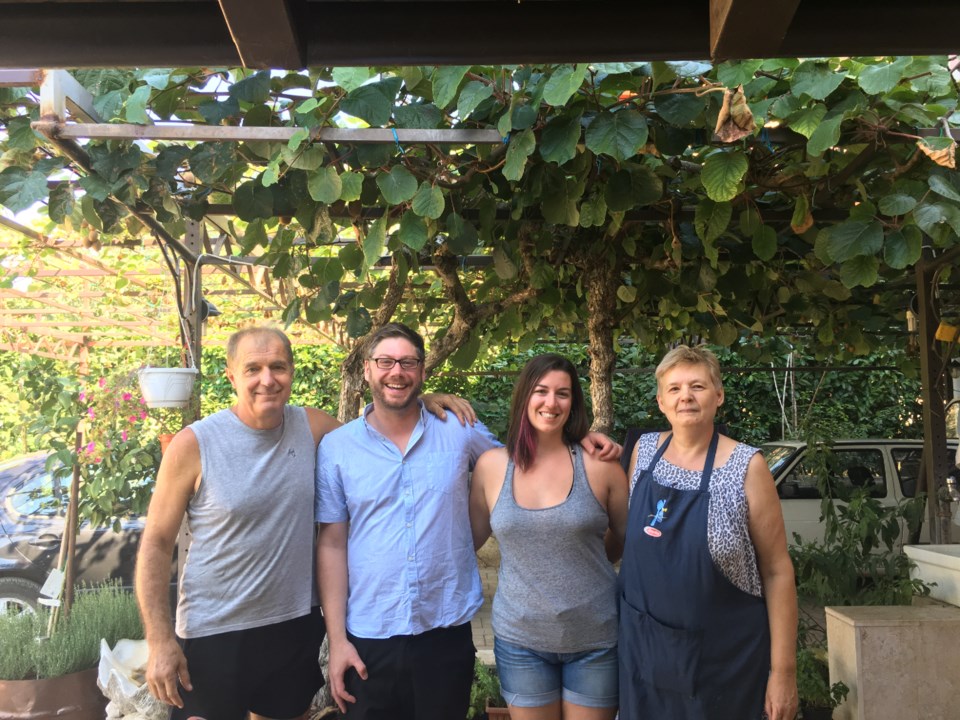This summer I took myself on an adventure. I’d never been to Europe before, and so I thought I’d do it right. One month, five cities, travelling with a friend for the first leg, and meeting up with my partner for the second. Since all of us had long outgrown our early-20s backpacker phase, we weren’t keen on crashing in hostels. But nor were we rolling in the kind of disposable income commanded by even lower-end hotels. The answer, accommodation-wise, was clear: Airbnb. We were, after all, the exact demographic the home-sharing platform is meant to appeal to, and appeal it did.
My trip started in Croatia where our hosts, Klaudio and Karmen, a semi-retired couple in their 60s, were the epitome of everything Airbnb claims to stand for: warm, genuine people who went out of their way to open their home and provide us with a unique cultural experience. They lived in a modest house on a picturesque piece of the Croatian countryside equidistant from the city of Pula and the spectacular beaches on the Adriatic Sea. They had two flats upstairs they let out to tourists, and a third was under renovation to add to the fleet.
It was a perfect arrangement. My friend and I spent our mornings and evenings chatting with our hosts on their covered terrace, playing with their cats and munching on fresh figs, grapes, and tomatoes from their garden. Klaudio even insisted we borrow his car to tour some of the area’s farther flung beaches. We quickly became fast friends and our departure scene unfolded in a manner the marketing folks at Airbnb could only dream of — tearful hugs, group photos and even a serenade sendoff courtesy of Klaudio, who busted out his accordion for an impromptu performance of Croatian folk songs. Seriously.
It was exactly the kind of encounter Airbnb is pushing with the advertising offensive launched in response to Vancouver city council’s proposed restrictions — ones that would limit short-term rentals to primary residences or extra bedrooms. The ads, featuring Vancouver residents who credit the home-sharing site for allowing them to stay put in a pricey city, have raised many eyebrows from those skeptical of Airbnb’s intentions. It is a marketing ploy. The ads don’t touch on the downside of the industry, notably the increased pressure on dwindling rental stock. But that doesn’t mean their portrayal is untrue. In fact, in my experience, Airbnb can actually function as a community-builder at the same time as it is a for-profit entity with a lock on a market that is only poised to grow.
Among millennials, life experiences like travel consistently rank as a top priority — in many cases above homeownership, steady jobs, or even having kids. We’ve grown up in a globalized world, keenly aware of all there is to explore and privileged enough to be able to do that, thanks in no small part to the disruptive forces of companies like Airbnb. That puts us in a bit of a conundrum. As a renter in Vancouver I know I am particularly vulnerable to the increased pressure the sharing economy poses on rental stock. Yet I have a hard time begrudging a company that allows many of my friends to maintain their independence as hosts. I wasn’t even upset when I discovered this summer that my neighbours’ secondary suite had been relegated exclusively for use on Airbnb. How could I fault them for offering a service I’d readily enjoyed in other locales?
Each place where Airbnb sets up is different, of course, and it requires a deft touch to get the balance right. The housing situation in semi-rural Croatia isn’t nearly the same as in Vancouver, where the proposal to ban short-term rentals of secondary suites is a prudent — if somewhat unfeasible — move. I can tell you it hasn’t made much difference in Berlin, where renting an entire suite on Airbnb was easy, despite the fact that it is banned. Meanwhile, in Lisbon, Airbnb is a welcome part of a burgeoning tourism industry that is taxed and regulated. Even so, you can practically smell the wave of gentrification about to hit the city as more visitors discover its winding streets and charming, rustic flats.
With regulations difficult to enforce and their outcomes impossible to predict, it may be that Airbnb begins to self-regulate down the road in the name of self-preservation. Because what it sells — an authentic, real-life homestay experience — is only possible so long as the community around it is healthy and intact. Nobody seeking accommodation through the site wants to stay in a sanitized tourist trap devoid of local culture. It’s why they book with Airbnb in the first place. The company has a vested interest in mitigating its impact on communities where it operates, lest it cannibalize itself and create an opening for another disruptor to swoop in. But it will likely be the market, not the regulators, that determine what that looks like.
@jm_barrett



